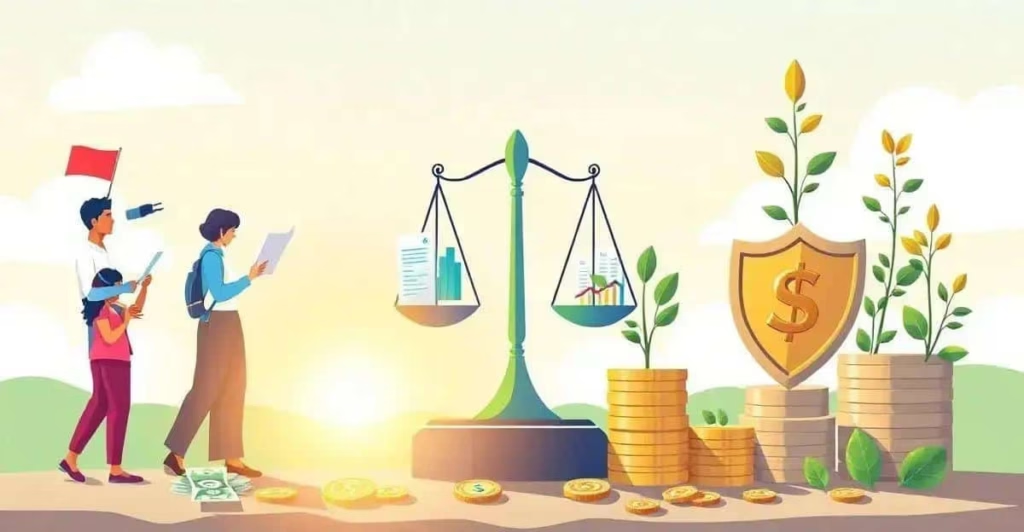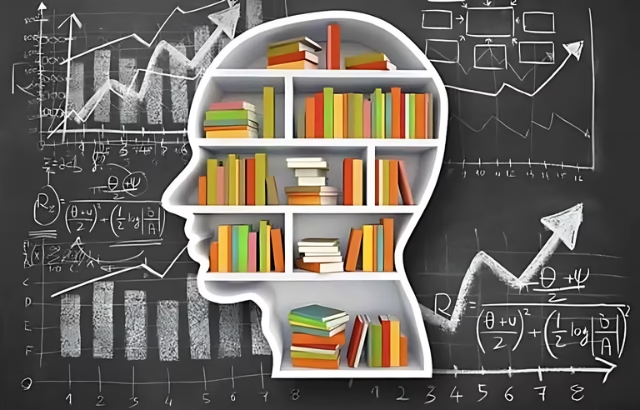Are you tired of living paycheck to paycheck, only to find yourself stuck with a mountain of credit card debt? Credit card pitfalls can be sneaky, but with the right knowledge, you can avoid them and take control of your finances.
In this article, we’ll explore the most common credit card traps and provide you with the tools you need to make informed decisions about your credit.
By the end of this article, you’ll be equipped with the knowledge to avoid these credit card pitfalls and start building a brighter financial future.

The Top 3 Credit Card Traps to Watch Out For
When it comes to using credit cards, it’s easy to get caught up in the convenience and rewards. However, beneath these benefits lurk pitfalls that can cause significant financial strain. Being aware of these traps is the first step toward avoiding them.
- High Interest Rates: Many credit cards come with annual percentage rates (APRs) exceeding 20%. While this doesn’t seem significant at first glance, high-interest charges can quickly accumulate if you carry a balance. For instance, a $1,000 balance with a 20% APR can cost you an extra $200 in interest annually, if unpaid.
- Fees and Charges: Credit card fees can catch even the most cautious users off guard. Late payment fees, annual fees, foreign transaction fees, and over-limit fees can add up, draining your finances faster than you realize. Choosing a card with low or no fees and paying on time can help you avoid these costs.
- Minimum Payment Traps: Paying only the minimum balance might seem manageable, but it’s a deceptive practice. Most minimum payments cover only a small portion of the principal balance, with the rest going toward interest. This prolongs your debt and increases the total amount paid over time.
Understanding the Fine Print
Credit card agreements are filled with terms and conditions that can significantly impact your financial health. Hidden fees, fluctuating interest rates, and penalty clauses are often buried in the fine print.
Before applying for a credit card, carefully review the terms, focusing on annual fees, APR variations, and grace periods. For example, some cards may have 0% introductory rates that skyrocket after a promotional period. By understanding the details, you can avoid unpleasant surprises and choose a card that aligns with your financial goals.

How to Fall into Credit Card Debt
Falling into credit card debt often happens gradually, fueled by everyday habits and financial missteps. Recognizing these patterns can help you stay vigilant.
- Lack of Budgeting: Without a clear budget, it’s easy to overspend on non-essential items or underestimate monthly expenses. Credit cards, with their ease of use, can amplify this problem.
- Relying on Minimum Payments: Paying only the minimum can lead to mounting debt and increased interest charges. This approach traps many in a cycle of revolving credit, where balances seem impossible to clear.
- Using Credit for Non-Essentials: Swiping your card for luxury items, dining out, or impulse buys can accumulate debt quickly. While occasional indulgences are fine, habitual spending without a plan can wreak havoc on your finances.
- Opening Too Many Accounts: Signing up for multiple cards within a short period can lead to overspending and difficulty managing payments. Additionally, too many credit inquiries may lower your credit score.
- High Credit Utilization Ratios: Using a large portion of your available credit sends a red flag to lenders, indicating potential financial instability. Aim to keep your utilization below 30% for optimal credit health.
How to Spot Warning Signs of Credit Card Trouble
Recognizing early signs of credit card trouble can save you from falling into financial hardship. Indicators like frequently maxing out your credit limits or struggling to make minimum payments are red flags.
Other warning signs include relying on cash advances, consistently transferring balances, or missing due dates. If you notice these patterns, take immediate steps to reassess your spending habits and create a plan to pay down your debt. Early intervention can prevent these challenges from escalating into unmanageable problems.
The Psychological Traps of Credit Card Spending
Credit cards make spending feel less tangible, which can lead to overspending. Unlike cash, swiping a card doesn’t immediately register as a loss, encouraging consumers to spend more than they would otherwise.
Additionally, credit cards often offer reward points or cashback incentives, creating a false sense of “earning” while spending. To counteract these psychological traps, stick to a predetermined budget, track all purchases, and regularly review your statements. Awareness is key to preventing emotional spending habits.
The Dangers of Credit Card Interest
Credit card interest is one of the costliest aspects of carrying a balance. Understanding how it works and how to mitigate its impact is crucial for financial health.
- Debt Spirals: Accrued interest can make it difficult to reduce your principal balance, leading to a snowball effect. This spiral often results in paying far more than the original debt.
- Strained Budgets: High monthly payments can limit your ability to cover other essential expenses, like rent or utilities. Balancing high-interest debt alongside daily expenses becomes an uphill battle.
- The Compound Effect: Credit card interest compounds daily or monthly, meaning unpaid interest gets added to your balance, which in turn accrues more interest. This can significantly inflate the total amount owed.
To combat these challenges, focus on paying more than the minimum each month, prioritizing high-interest debt first, and avoiding unnecessary purchases.
Debt Snowball vs. Debt Avalanche: Which Works Best?
Two popular strategies for paying off credit card debt are the debt snowball and the debt avalanche methods. The debt snowball focuses on tackling smaller balances first, providing quick wins and motivation to continue.
The debt avalanche, on the other hand, prioritizes accounts with the highest interest rates, saving more money over time. Both methods are effective, but the choice depends on your personality and financial situation. Whichever you choose, consistency is the key to successfully reducing your debt.
The Importance of Grace Periods
A grace period is the time between your billing cycle’s end and your payment due date when no interest is charged on new purchases. Understanding and utilizing this feature can save you money on interest.
However, grace periods vanish if you carry a balance from month to month. To maximize this benefit, always pay your balance in full by the due date. This simple habit prevents interest accrual and keeps your financial obligations manageable.
How to Build a Credit Score
A strong credit score is your gateway to financial opportunities, from lower interest rates on loans to better rental applications. Building and maintaining it requires discipline and consistency.
- Low Utilization Ratio: Keep your credit utilization under 30% by paying off balances regularly. For instance, if you have a $5,000 credit limit, aim to use no more than $1,500 at any time.
- On-Time Payments: Timely payments are critical. Automating payments or setting reminders can help ensure you never miss a due date. Payment history accounts for 35% of your credit score, making it the most significant factor.
- Credit Monitoring: Regularly review your credit report for errors, such as incorrect balances or accounts you don’t recognize. Dispute inaccuracies promptly to avoid unnecessary score reductions.
- Avoid Frequent Applications: Each application results in a hard inquiry, which can lower your score temporarily. Be strategic about applying for credit and space out your applications.
- Maintain Old Accounts: Closing older accounts may shorten your credit history, which affects 15% of your score. Keeping long-standing accounts open is beneficial, even if you don’t use them frequently.

How Credit Inquiries Affect Your Score
Every time you apply for credit, lenders perform a hard inquiry, which can slightly lower your credit score. While this effect is temporary, too many inquiries in a short period may signal risk to potential creditors.
Instead of applying for multiple cards at once, research your options and choose one that meets your needs. Additionally, check if you’re prequalified for a card, as this involves a soft inquiry that won’t impact your score. Strategic planning ensures your credit score remains stable while you pursue new financial opportunities.
Credit Card Rewards: Are They Worth It?
Credit card rewards can be enticing, but their value depends on your spending habits and financial discipline.
Pros:
- Rewards programs can offer cashback, travel perks, or discounts, adding value to your purchases.
- They can offset costs if used strategically, especially for planned expenses like groceries or bills.
Cons:
- Rewards often come with conditions, such as high spending thresholds or expiration dates.
- Overspending to earn rewards can negate their benefits and lead to debt.
If you decide to use a rewards credit card, choose one that aligns with your spending patterns and has no or low annual fees. Always pay off your balance in full to avoid interest charges that could cancel out your rewards.
How to Maximize Credit Card Rewards
To truly benefit from credit card rewards, align your spending with a rewards program that suits your lifestyle. For example, frequent travelers should consider cards with travel miles, while those focused on everyday purchases might prefer cashback options.
Maximizing rewards also involves timing your spending to take advantage of bonus categories or promotional periods. Just ensure you don’t overspend chasing points—rewards are only valuable if you pay off your balance in full and avoid interest charges.
The Pros and Cons of Credit Card Balance Transfers
Balance transfers offer a chance to consolidate debt under a lower interest rate, but they’re not without risks.
Pros:
- Debt Consolidation: Combine multiple credit card balances into one payment, making management easier.
- 0% APR Offers: Many cards offer a promotional period with no interest, providing a chance to pay down the principal faster.
Cons:
- Transfer Fees: Most cards charge 3%-5% of the transferred amount, which can offset savings.
- Qualification Requirements: Good to excellent credit is often necessary to access the best offers.
- Limited Time Benefits: Once the introductory period ends, rates may revert to a higher standard APR.
To maximize the benefits of a balance transfer, create a repayment plan to eliminate the debt before the promotional period ends. Read the terms carefully and avoid adding new charges to the card.
Avoiding credit card pitfalls isn’t just about dodging debt; it’s about building a sustainable financial future. By staying informed, budgeting wisely, and using credit responsibly, you can leverage the benefits of credit cards while steering clear of their downsides.
Using Balance Transfers to Escape Debt Cycles
Balance transfers can be a powerful tool for escaping high-interest debt, but they require discipline and planning. Start by calculating whether the transfer fee outweighs the potential savings in interest.
Once you transfer a balance, avoid adding new charges to the card, as this undermines your goal of reducing debt. Set a repayment timeline that aligns with the 0% APR period, and stick to it. Properly executed, a balance transfer can provide the breathing room needed to regain control over your finances.
The Role of Technology in Credit Management
Apps and online tools have revolutionized how we manage credit. Budgeting apps, like Mint or YNAB, help track expenses and avoid overspending, while credit monitoring tools alert you to changes in your credit report.
Some credit cards also offer features like spending caps or customized alerts, which can prevent financial missteps. Leveraging these technologies makes it easier to stay on top of your finances and avoid common credit card pitfalls.
Building Financial Resilience
Financial resilience is about preparing for unexpected challenges, such as job loss or medical emergencies, that can push you into debt. One of the most effective ways to achieve this is by building an emergency fund equivalent to three to six months of expenses.
This safety net reduces reliance on credit cards during crises. Additionally, maintain a healthy mix of credit accounts and avoid over-leveraging your finances. A proactive approach to saving and credit management will fortify your financial future.
The Hidden Costs of Introductory Offers
Introductory offers, like 0% APR or bonus rewards, can seem appealing, but they often come with hidden costs. For instance, failing to pay off a balance during a promotional period may result in retroactive interest charges, significantly increasing your debt.
Additionally, these offers sometimes include balance transfer fees or spending thresholds to qualify for rewards. To avoid surprises, read the terms and conditions carefully and have a plan to pay off balances before promotional rates expire. Awareness of these hidden costs helps you make smarter financial decisions.
Credit Card Myths You Should Ignore
There are several myths about credit cards that can lead to poor financial decisions. One common misconception is that carrying a balance improves your credit score—this is false. Paying off your balance in full each month is the best approach.
Another myth is that closing old accounts improves your score, but this can actually shorten your credit history and lower your score. Be sure to fact-check financial advice and rely on credible sources to make informed decisions about your credit.
Conclusion
Navigating the world of credit cards can be overwhelming, but with the right strategies and awareness, it’s possible to avoid pitfalls and maintain financial health. By understanding the common traps, like high interest rates and overspending, you can take proactive steps to stay in control. Remember, credit cards are tools—not lifelines—and should be used wisely to support your financial goals.
Building good habits, such as making timely payments, maintaining a low utilization ratio, and monitoring your credit report, will set the foundation for long-term success. Leverage resources like budgeting tools, credit counseling, and strategic repayment plans to strengthen your financial position. With discipline and planning, you can use credit cards to your advantage without falling into debt.
Ultimately, achieving financial freedom is about consistency and education. The more informed you are about how credit works, the better equipped you’ll be to make decisions that align with your goals. Use the tips and insights from this guide to avoid credit card pitfalls and pave the way to a debt-free and secure future.
FAQ: Frequently Asked Questions about Credit Card Traps
What are the top 3 credit card traps to watch out for?
The top 3 credit card traps to watch out for are high interest rates, fees and charges, and minimum payment traps.
How can I avoid falling into credit card debt?
To avoid falling into credit card debt, make sure to pay your balances in full each month, avoid making late payments, and keep your credit utilization ratio low.
What are the dangers of credit card interest?
The dangers of credit card interest include accruing high balances, paying interest on interest, and struggling to pay off debt.
How can I build a strong credit score?
To build a strong credit score, make sure to pay your bills on time, keep your credit utilization ratio low, and monitor your credit report for errors.
Are credit card rewards worth it?
Credit card rewards can be worth it if you use them wisely and make sure to read the fine print. However, they may not be worth it if you’re not careful with your spending habits.
What are the pros and cons of credit card balance transfers?
The pros of credit card balance transfers include consolidating debt and taking advantage of 0% introductory APRs. The cons include balance transfer fees, variable APRs, and requiring a good credit score.
Source: CNBC | Related articles: Medium / Quora




